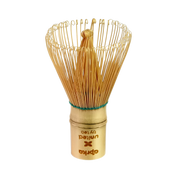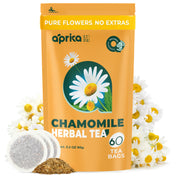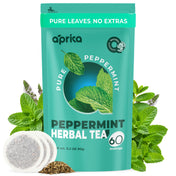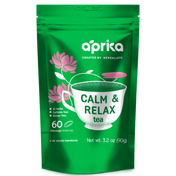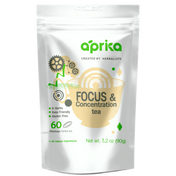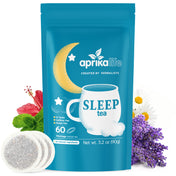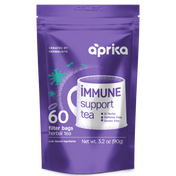Strawberry Matcha Cheesecake
Rated 5.0 stars by 1 users
Category
Desserts
Cuisine
American
Servings
10
Prep Time
1 hour
Cook Time
2 hours
A stunning dessert that layers the earthy elegance of matcha with the bright sweetness of strawberries and the creamy richness of cheesecake. This recipe brings together a crisp, buttery matcha shortcrust base, a sweet strawberry confit center, and a silky cheesecake filling swirled with matcha gel. Finished with a glossy green tea glaze and fresh berries, it is as eye-catching as it is delicious.
The result is a perfect cheesecake, not too heavy, with slight bitterness from the matcha, refreshing fruitiness from strawberries, and luxurious smoothness from cream cheese and mascarpone. This recipe is ideal for anyone who loves modern twists on classic desserts. It is also a show-stopping centerpiece for celebrations, afternoon tea, or whenever you want to impress.
Ingredients
Matcha Base
-
6 tbsp unsalted butter, softened (85 g)
-
⅓ cup + 1 tbsp sugar (80 g)
-
½ tsp salt (2 g)
-
⅓ cup cornstarch (40 g)
-
1 cup + 2 tbsp all-purpose flour (140 g)
-
3 tbsp almond flour (20 g)
-
2 tsp matcha powder (7 g)
-
1 tbsp water (15 g)
-
2 ½ tbsp unsalted butter, melted (35 g)
Strawberry Confit
-
½ cup strawberry purée (130 g)
-
1 ½ tsp agar-agar (4.5 g)
-
3 ½ tbsp sugar (45 g)
Matcha Gel
-
1 cup whole milk (255 g)
-
¼ cup sugar (50 g)
-
1 tbsp matcha powder (9 g)
-
¾ tsp agar-agar (2.5 g)
Cheesecake Layer
-
¾ cup cream cheese (165 g)
-
¾ cup mascarpone (180 g)
-
1 large egg (55 g)
-
1 large egg yolk (18 g)
-
3 ½ oz white chocolate, 33% (105 g)
-
⅓ cup heavy cream, 33% (85 g)
Directions
Matcha Base
Cut butter into cubes and soften.
Mix sugar, salt, flours, cornstarch, and matcha powder. Add butter and combine until crumbly. Add water if needed to hold texture.
Chill dough for at least 1 hour.
Bake at 320–340 °F (160–170 °C) for 15–20 minutes, stirring twice during baking. Cool completely.
Crush into fine crumbs, mix with melted butter (35 g).
Grease a ring mold, place on parchment, and press in crumbs to form a base with 2 in (5.5 cm) sides. Refrigerate.
Strawberry Confit
Mix sugar with agar.
Heat strawberry purée to 105 °F (40 °C).
Whisk in sugar-agar mix. Bring to a boil, simmer 30–60 seconds.
Cool to 120–140 °F (50–60 °C).
Pour onto chilled crust and refrigerate to set.
Matcha Gel
Whisk milk, sugar, agar, and matcha.
Bring to a boil, simmer ~30 seconds while whisking.
Cool and blend into a smooth gel.
Reserve ⅓ of gel for cheesecake filling; refrigerate. Leave the rest for topping.
Cheesecake Layer
Heat cream until boiling, pour over white chocolate, and stir until smooth (ganache).
Beat cream cheese, adding whole egg and yolk one at a time.
Fold ganache into cheese mixture in three parts.
Spread batter over strawberry confit. Pipe small dots of matcha gel inside batter.
Bake at 195–230 °F (90–110 °C) for 100–150 minutes until set.
Cool to room temperature, then refrigerate for at least 6 hours.
Final Assembly
Reheat the remaining matcha gel to 140 °F (60 °C).
Pour evenly over the chilled cheesecake as a glaze.
Decorate with fresh berries and mint leaves.
Recipe Video
Recipe Note
Baking Time – How Long Does It Take?
The baking time depends on your oven, the temperature (195–265 °F), the height of the cheesecake (about 2–2.5 inches), and the flavor type (chocolate, caramel, berry, or fruit). Because of all these factors, the only reliable way is to check for doneness using the method below.
On average, a cheesecake baked in a 6–7 inch pan and 2–2.5 inches tall takes around 100 minutes.
How to Check if Cheesecake Is Done
- • Cheesecakes bake in a low range of 195–265 °F. In 80% of cases, 230 °F is the best temperature for a standard electric oven.
- • If using gas, keep it on the lowest setting and occasionally open the door if the heat rises above 265 °F.
- • The cheesecake should not rise like a sponge cake.
- • A 6-inch cheesecake usually needs 120–140 minutes. Mini cheesecakes take 40–60 minutes. Larger ones naturally need more time.
- • If you see butter leaking out during baking, don’t worry — that’s normal and won’t affect taste or texture.
- • To test doneness: gently touch the top with your finger. It should stay clean, while the cake wobbles slightly like pudding (not liquid, but trembling). Do not test with a toothpick — it will take far too long to bake.
Cooling and Chilling
- • Cooling in a closed oven lets the cheesecake finish baking slowly, while in an open oven it cools faster.
- • Always cool to room temperature before moving it to the refrigerator.
- • Chill for at least 6 hours before unmolding. Never remove from the pan before that.
- • If the cheesecake pulls away from the crust, it means you either refrigerated it while still warm or overbaked it.
Water Bath – Do You Need It?
Use a water bath only if your cheesecake rises and browns even at low temperature. In most cases, it isn’t necessary. The steam simply helps reduce oven heat.
Baking Modes
Cheesecakes can be baked on almost any oven setting, but the best is top and bottom heat.
- • If baking several trays at once, use convection. In that case, don’t exceed 210 °F — ideally 195 °F.
Important Notes
- • Bake in solid cake rings at least 2.5 inches tall for even shape. Grease the ring with butter.
- • For a crust with sides, always grind and re-form the baked shortcrust crumbs with a little butter (dairy, coconut, or cocoa butter).
- • Crust height can vary depending on your design and preference.
- • Avoid cheesecakes taller than 2.5 inches. Thick layers of filling look impressive but are heavy to eat.
- • If you prefer sponge cake instead of a crumb crust, bake it ½–¾ inch thicker than the cheesecake diameter, at least ½ inch tall, so it doesn’t get lost under the filling.
- • If substituting milk for cream in the filling, keep a 2:1 ratio (cream to milk). Do not make this swap for classic styles like New York, vanilla, or citrus cheesecakes, or you’ll lose flavor.
- • For fruit or berry cheesecakes, always thicken purée with cornstarch to stabilize water. The amount depends on the fruit — after cooking down, it should coat a whisk and not run off.
- • Cheesecake should never puff up while baking. If it does, lower the oven temperature.


